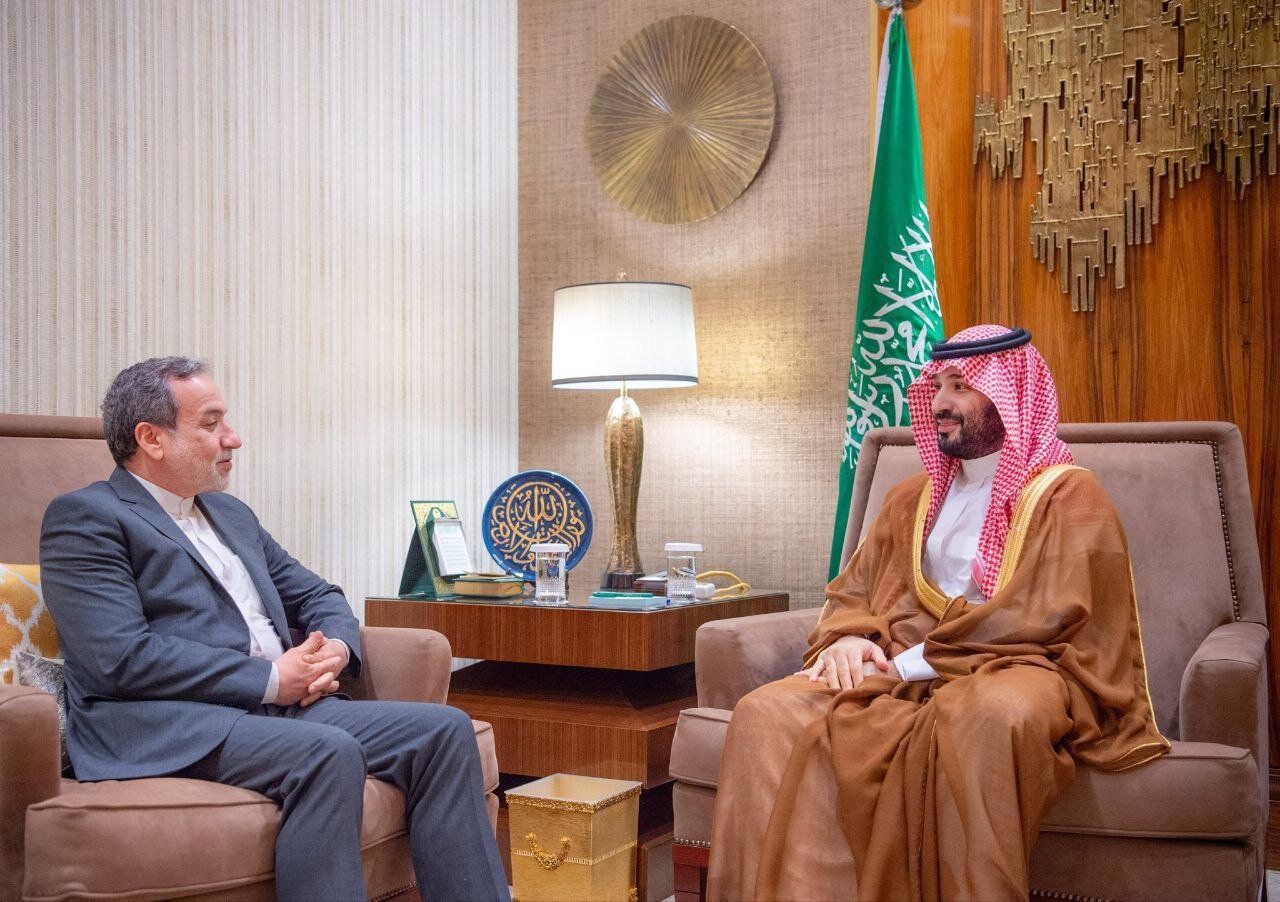Time for change
Araqchi’s visit to Riyadh likely a call on Arabs to stop cold-shouldering Palestinians

TEHRAN – After visiting Qatar, Lebanon, and Syria in a flurry of foreign visits, Iranian Foreign Minister Abbas Araqchi arrived in the Saudi capital of Riyadh on Wednesday.
Despite a recent thaw in relations, Araqchi’s brief stopover in Saudi Arabia wasn't primarily focused on bilateral ties. Although Iran and Saudi Arabia have been working to strengthen relations since their rapprochement in March 2023, his quick visit, followed by a direct flight to Qatar, was less about bilateral relations and more about the current precarious state of West Asia – something the foreign minister himself confirmed in remarks to reporters.
“Regional affairs will be the main focus of my discussions. The situation in Gaza and Lebanon in particular is of paramount importance,” Araqchi said before he met with Saudi Foreign Minister Faisal bin Farhan and Crown Prince Mohammad Bin Salman.
The specter of all-out war has haunted West Asia for a year, ever since Israel launched its genocidal war in Gaza. But the region has never felt so close to the brink of a full-blown conflagration as it does right now. Tensions are at a fever pitch, as the regime has spread its deadly military campaign to Lebanon, and says will be moving to Yemen next.
The Muslim world needs a reality check
For the past year, most Arab leaders have spurned public demands asking them to pressure Israel to halt its crimes against the Palestinians in Gaza. Aside from the Yemenis and Lebanese, Arab leaders, including the Saudis, have merely resorted to condemning the regime’s heart-rending crimes through late statements. Behind the closed doors, some of them are even giving Israel a hand.
Israel’s Channel 13 revealed last year that Saudi Arabia, the UAE, and Jordan have come to Israel’s rescue by creating a land corridor that helps the regime bypass the Red Sea, where ships heading to the occupied territories are no longer able to sail due to incessant Yemeni attacks.
Furthermore, Saudi Arabia's state-owned media often finds itself in the crosshairs of criticism from Muslim populations around the world. The frequent appearances of high-ranking Israeli officials on Saudi news channels during major events, like when the regime is attacked by Iran or Hezbollah, has sparked outrage among millions of people who accuse news outlets like Al Arabiya and Al-Hadath of acting as megaphones for Israeli narratives.
Analysts believe that Riyadh's reluctance to effectively shun Israel is a direct consequence of their almost completed normalization process before Operation Al-Aqsa Storm. While this cautious approach might appear pragmatic in the short term, there are serious warnings that Saudi Arabia is playing a risky gamble in the long run.
“The visions for the future of West Asia held by Iran and Saudi Arabia are quite distinct,” says West Asia expert Mohammad Reza Moradi. “While Riyadh has forged a strong alliance with Washington and shown a clear willingness to normalize ties with Israel, Tehran champions a very different vision – one that sees both American and Israeli forces departing the region.”
Mohammad Bin Salman reportedly told U.S. Secretary of State Antony Blinken that he does not personally care about the Palestinian cause. According to a report in The Atlantic, Bin Salman told Blinken back in January that Riyadh cannot sign a normalization deal with Israel when the war in Gaza is still ongoing. However, he reportedly said to the American official that Israel can restart its military campaign in the enclave once the deal is signed. “They can come back in six months, a year, but not on the back end of my signing something like this,” the crown prince allegedly said.
Moradi believes that Saudi Arabia's cozy relationship with Israel has an expiration date. The relationship between the two may currently seem respectful and equal, but that will change once Israel is done fighting the Axis of Resistance.
“Israel has an expansion plan in West Asia that has gained traction among settlers in recent years. The so-called ‘greater Israel’ project encompasses Lebanon, Jordan, and parts of Syria, Egypt, and Saudi Arabia.”
The expert noted that, in addition to its expansionist policies, Israel is opposed to the emergence of a strong Muslim state in the region. Therefore, it is misguided to think Zionists only consider Iran and the rest of the Axis of Resistance as its enemies. “Saudi Arabia has always been a trendsetter in the Arab world. Once Riyadh realizes it needs to change its approach towards Israel, the rest of the Arabs will eventually follow suit.”
Leave a Comment